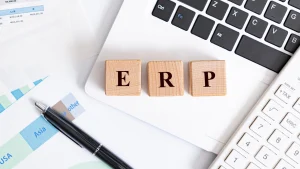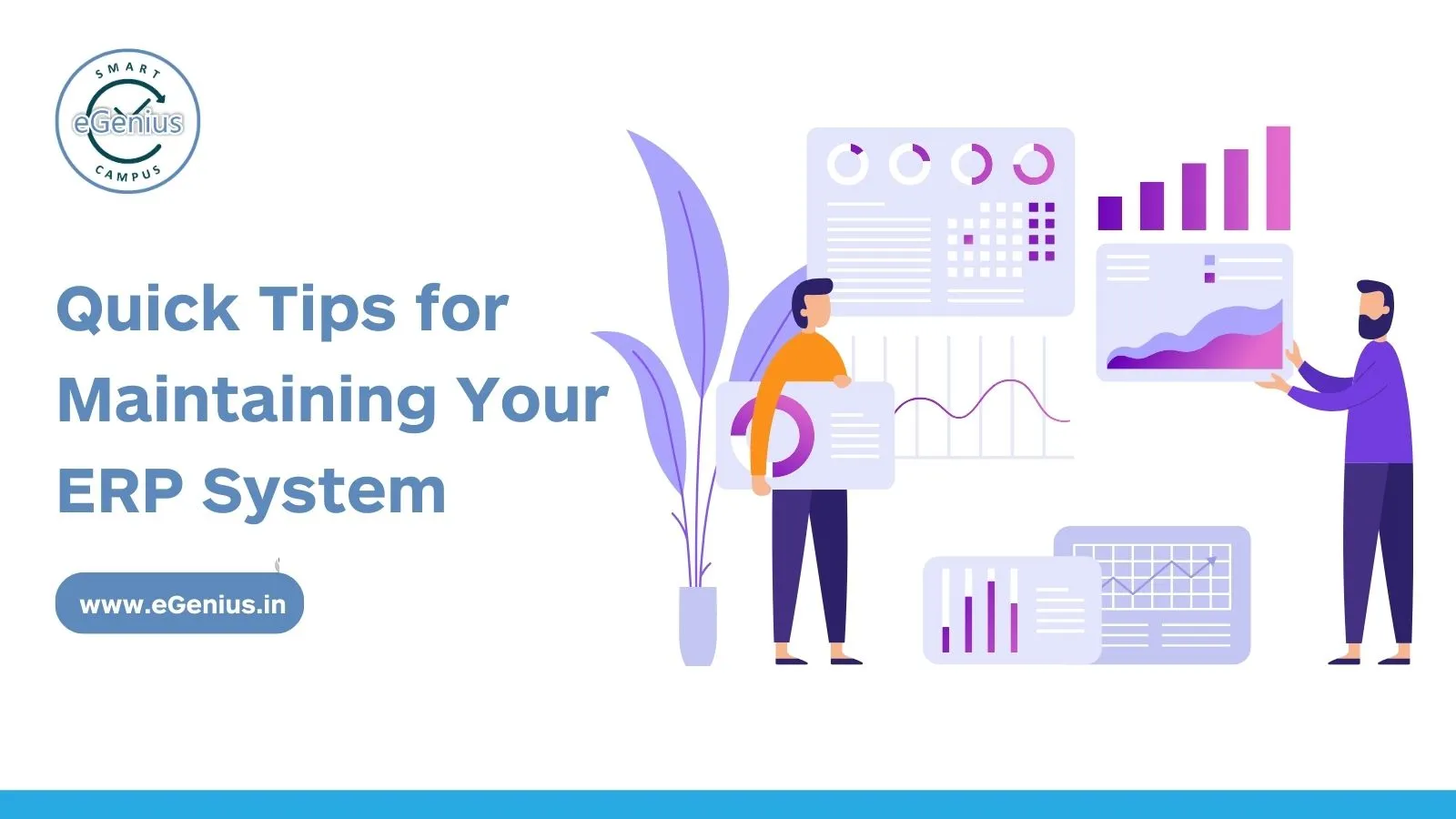Educational Institutes are progressively turning to Enterprise Resource Planning (ERP) systems to optimize their operations, boost efficiency, and elevate overall performance. ERP software serves as a comprehensive solution, seamlessly integrating diverse functions across departments, thereby furnishing a centralized hub for data management and informed decision-making. However, to harness the full potential of ERP, it is imperative to uphold its smooth operation through consistent maintenance and upkeep.
This post Will Discuss:
- What is ERP?
- Why ERP is Important for Educational Institutes?
- Quick Tips for Maintaining Your ERP System
What is ERP?
Enterprise Resource Planning (ERP) is a comprehensive software solution designed to manage and integrate core business processes such as finance, education, human resources, inventory, procurement, and more. By consolidating data and processes into a unified system, ERP facilitates seamless communication and collaboration across different departments within an organization.
According to a study, 78% of educational institutions have implemented or are planning to implement an ERP system to streamline administrative processes and improve operational efficiency.

Why ERP is Important for Educational Institutes?
Many Educational organizations, like schools and colleges, struggle with management tasks. These include keeping student files up to date or overseeing budget transactions and resource distribution. The answer to these problems? these systems. These handy tools automate regular tasks and tidy up workflows, giving a live look into the many aspects of the institutions working.
ERP enables educational institutions to:
- Improve Efficiency: These systems take over repeat jobs and processes. This cuts down hands-on work, lessens mistakes, and gives workers more time for important tasks.
- Enhance Decision-Making: Having full data and analytics lets leaders make smart choices. They can decide how to share resources, plan classes, understand student success, and do lots more.
- Ensure Compliance: These software helps educational institutes to stick to rules and standards. It does this by keeping precise records, watching over compliance tasks, and creating audit reports.
- Enhance Communication: These systems help everyone at educational organizations – teachers, workers, and their parents – to talk and work together smoothly. They do this by giving everyone one place to get info and talk.
- Optimize Resource Utilization: These systems track how resources are used. They notice trends in usage and demand at schools. This helps institutes use resources better, cut down on waste, and hand out resources in a smarter way.
According to market research, 70% of educational institutions believe that ERP systems improve communication and collaboration across departments.
Quick Tips for Maintaining Your ERP System:
- Regular Software Updates and Patches: It is vital to keep your ERP software current by applying the newest patches and updates from your vendor. Staying regular with these updates is important. It fixes security flaws and boosts system speed. Also, it helps in matching other software applications.
- Data Backup and Recovery: Put a strong plan in place for data backup and recovery. This shields against losing information from system glitches, gadget faults, or online threats. Regularly store important data and check your restoration method to verify it works.
- User Training and Support: Give ERP users full training. This includes people like administrators, faculty, and staff. This ensures they know how to use the system well. Regularly help and provide resources for any questions. Assist with any problems and make sure they can use the system to the best of their abilities.
- Performance Monitoring and Optimization: Keep an eye on these systems working to spot holdups, non-efficient spots, and places for betterment. Make use of tools that observe the performance to follow system activity, speed of responses, and resource use, and tune up the system setup when required.
- Security Measures: Establish strong safety steps to guard important info in the ERP system. This involves user checks, entry limits, code scrambling, and frequent security checks to spot and fix any weak points.
- Regular System Audits Regularly check your these system. Make sure it follows rules, standards, and company policies. Spot any areas not following these or not working well. Act quickly to fix these issues.
Find out how eGenius ERP can make running your Education Institutes easier. Upgrade your processes and start today! Visit egenius. For more details.
Maintaining an ERP system in educational organizations is necessary. It assures smooth processes and full use of the system. With these easy-to-follow ERP maintenance steps, you can enhance the system’s function. You will improve data security and increase work productivity. Taking care of your system can impact your educational organizations success and growth in the future.
Remember, the key to effective ERP maintenance is consistency and addressing issues before they escalate. Prioritizing ERP upkeep allows Educational Institutes to utilize technology in fostering innovation, improving student outcomes, and achieving their primary objectives.














